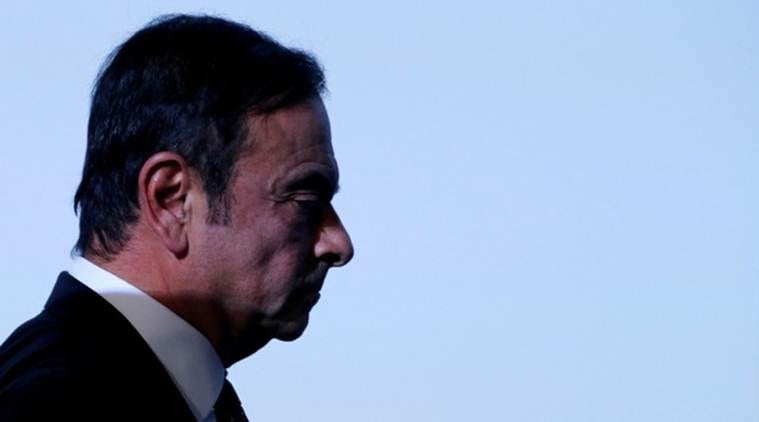Stay updated with the latest - Click here to follow us on Instagram
‘Won’t extradite’ Carlos Ghosn if he arrives in country: France interior minister
Ghosn, who holds a French, Brazilian and Lebanese citizenship, was first arrested in Tokyo in November 2018 and faces four charges, including hiding income and enriching himself through payments to car dealerships in the Middle East.
 FILE PHOTO: Carlos Ghosn, chairman and CEO of the Renault-Nissan-Mitsubishi Alliance, attends the Tomorrow In Motion event on the eve of press day at the Paris Auto Show, in Paris, France, October 1, 2018. REUTERS/Regis Duvignau/File Photo
FILE PHOTO: Carlos Ghosn, chairman and CEO of the Renault-Nissan-Mitsubishi Alliance, attends the Tomorrow In Motion event on the eve of press day at the Paris Auto Show, in Paris, France, October 1, 2018. REUTERS/Regis Duvignau/File Photo
Days after former Nissan boss Carlos Ghosn fled Japan for Lebanon to avoid trial, France has said that it won’t extradite him if he arrived in France, reported AFP. France’ junior interior minister Agnes Pannier-Runacher was quoted as saying by AFP, “If Mr Ghosn arrived in France, we will not extradite Mr Ghosn because France never extradites its nationals.”
Ghosn, who holds a French, Brazilian and Lebanese citizenship, was first arrested in Tokyo in November 2018 and faces four charges, including hiding income and enriching himself through payments to car dealerships in the Middle East. He denies the charges.
Earlier in the day, Reuters reported that Turkish police detained seven people, including four pilots, after an investigation into how the ousted Nissan boss transited through Istanbul en route to Lebanon after fleeing Japan. Reuters quoted a police spokesperson say saying that the other detainees were two airport ground workers and one cargo worker and all seven were expected to give statements before a court on Thursday.
The former Nissan boss revealed on Tuesday he had fled to Beirut to escape what he called a “rigged” justice system.
Meanwhile, Japanese prosecutors today had raided the Tokyo home of Ghosn, reported Reuters. Japanese media showed investigators entering the home, which was Ghosn’s third residence in Tokyo since he was first arrested a year ago. Authorities have now searched each one. It is unclear how Ghosn avoided the tight surveillance he was under in Japan and showed up in Lebanon.
Lebanon has said Ghosn entered the country legally, and there was no reason to take action against him. The Lebanese minister for presidential affairs, Selim Jreissati, was quoted by Reuters as saying to An-Nahar newspaper that Ghosn entered legally at the airport with a French passport and Lebanese ID.
Subsequently, Interpol issued a Red Notice, or a request to law enforcement agencies worldwide that they locate and provisionally arrest a fugitive. A Red Notice is not an arrest warrant and does not require Lebanon to arrest Ghosn.
Shortly afterwards, Ghosn issued a statement — his second this week — seeking to distance his Lebanese wife and family from any role in his escape. “The allegations in the media that my wife Carole and other members of my family played a role in my departure from Japan are false and misleading. I alone organized my departure. My family played no role,” he was quoted as saying by AP.
(With inputs from agencies)































